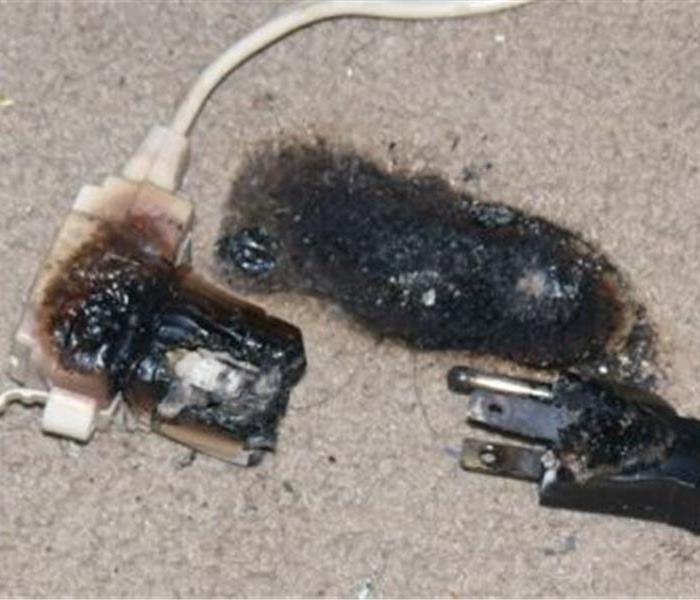Extension Cord Safety Tips
5/12/2016 (Permalink)
Not enough cord for your lamp or radio to reach the nearest outlet? Just plowing through the junk drawer for an extension cord? This may not be a good idea. Extension cords can be very helpful in delivering power right where we need it. However, regardless of the gauge or rating of the cord, an extension cord is a temporary solution, and is not meant to be used as a long-term extension of your household’s electrical system.
Using extension cords properly is critical to your safety. With continuous use over time, an extension cord can rapidly deteriorate, creating a potentially dangerous electric shock or fire hazard. The Electrical Safety Foundation International (ESFI) offers the following tips for staying safe from electric shock and electrical fires:
- Do not overload extension cords or allow them to run through water or snow on the ground.
- Do not substitute extension cords for permanent wiring.
- Do not run through walls, doorways, ceilings or floors. If cord is covered, heat cannot escape, which may result in a fire hazard.
- Do not use an extension cord for more than one appliance.
- A heavy reliance on extension cords is an indication that you have too few outlets to address your needs. Have additional outlets installed where you need them.
- Multiple plug outlets must be plugged directly into mounted electrical receptacles; they cannot be chained together.
- Make sure the extension cord or temporary power strip you use is rated for the products to be plugged in, and is marked for either indoor or outdoor use.
- The appliance or tool that you are using the cord with will have a wattage rating on it. Match this up with your extension cord, and do not use a cord that has a lower rating.
- Never use a cord that feels hot or is damaged in any way. Touching even a single exposed strand can give you an electric shock or burn.
- Never use three-prong plugs with outlets that only have two slots for the plug. Do not cut off the ground pin to force a fit. This defeats the purpose of a three-prong plug and could lead to an electrical shock. Never force a plug into an outlet if it doesn’t fit.
- Use extension cords with polarized and/or three-prong plugs.
- Buy only cords approved by an independent testing laboratory, such as Underwriters Laboratories (UL), ETL-SEMKO (ETL) or Canadian Standards Association (CSA).
- Do not substitute extension cords for permanent wiring.




 24/7 Emergency Service
24/7 Emergency Service
